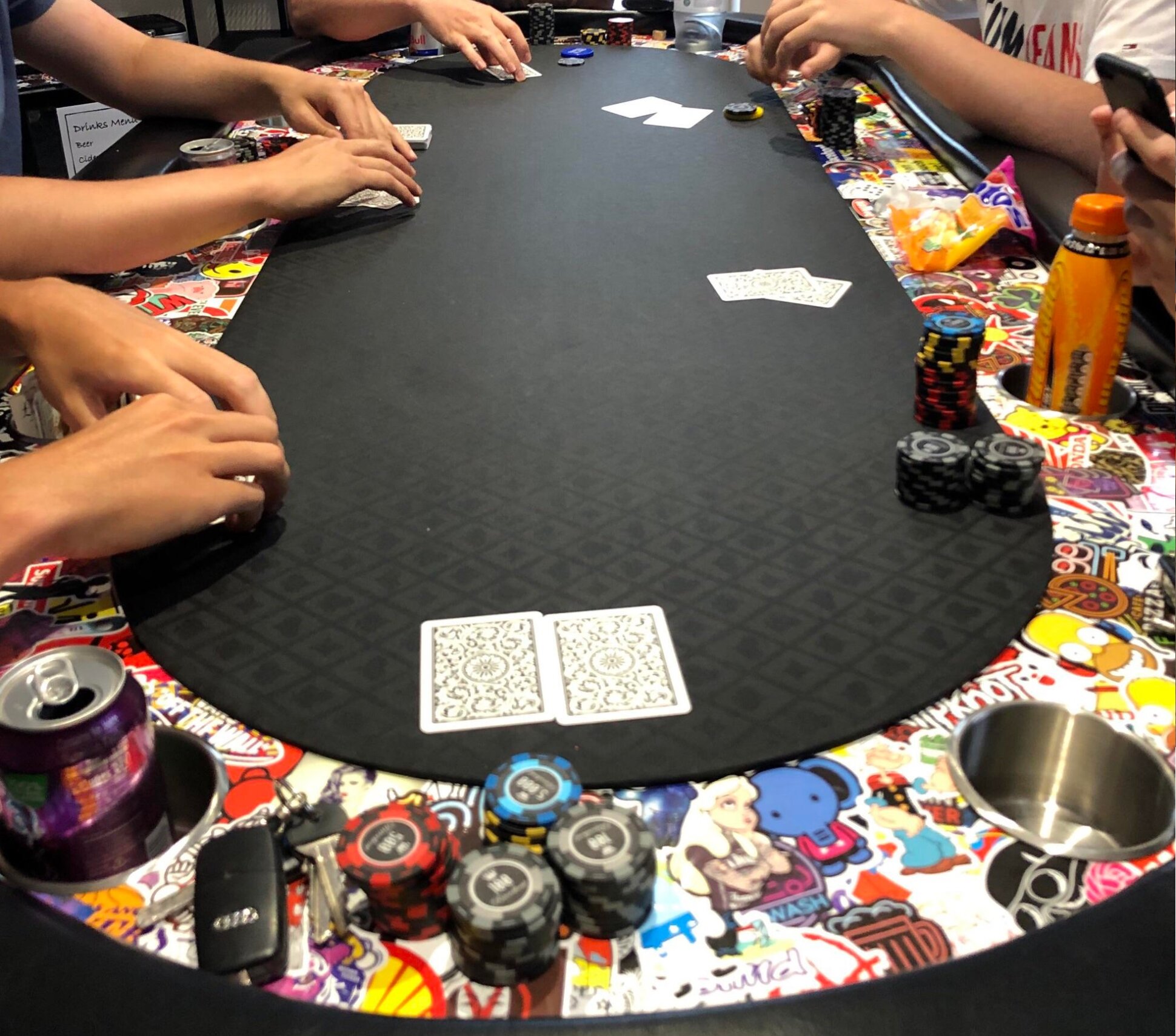Hosting a poker home game can be a fantastic way to bring friends together for an evening of fun, strategy, and camaraderie.
Whether you’re an experienced player or a beginner, creating the right atmosphere and ensuring everyone has a good time is key to a successful poker night.
This guide will take you through every step of planning and executing a memorable poker home game.

Planning Your Poker Home Game
The first step in hosting a poker home game is selecting an appropriate date and time. Most players prefer weekends, but it’s essential to communicate with your social circle to find a time that works for everyone to ensure the best possible turnout.
To avoid scheduling conflicts, check local events and holidays that might interfere with your game. Once you’ve settled on a date, send out invitations well in advance to ensure everyone can make it.
When it comes to inviting players, start with a close-knit group of friends or acquaintances who you know have the same passion for the game as you do.
Be cautious about expanding your guest list to begin with. Invite only those you trust or who come recommended by friends. This helps maintain a friendly atmosphere and minimises potential conflicts during gameplay.
There is nothing worse in a poker home game than a perceived breach of trust via accusations of unethical play or preferential organisation.
Consider the ideal number of players for your game. A typical poker table accommodates 6 to 10 players comfortably.
If you have more than ten interested participants, consider running two tables or starting with a tournament format before transitioning to cash games.
Make sure to communicate any limitations clearly in your invitations so that everyone knows what to expect. Again: it’s easy for people to feel the set-up is against them personally and conflicts are easy to start in this environment.
Setting Up the Game
Choosing the Format: Cash Game or Tournament
Cash Games: These are generally more flexible and easier for beginners. Players can join or leave at any time, and they play with real money that can be cashed out at any moment. Simplicity is key.
Tournaments: These add excitement and structure, especially with larger groups. Players pay an entry fee for tournament chips, and once they lose all their chips, they are eliminated from the game.
Both formats have their pros and cons, so consider your group’s preferences when making this decision.
Setting Stakes
Establish comfortable buy-in amounts that suit the majority of your guests.
A common guideline is to keep the maximum buy-in at 100 big blinds as we see in 99% of online cash games.
For example, in a $0.50/$1 game, set the max buy-in at $100. This approach allows for sufficient play without overwhelming newcomers.
You might also consider offering different stakes for different tables if you have enough players, allowing everyone to find their comfort zone. Players can also start at the smaller table and move over if they run good and win enough.
Preparing Chips and Cards
Make sure you have enough poker chips (a standard set of 500 is ideal) and at least two decks of cards per table to keep the game flowing smoothly.
Choose simple chip denominations—two colours for cash games or three for tournaments—to minimise confusion among players.
If you’re new to hosting poker games, consider investing in quality equipment. A good set of chips and cards can enhance the overall experience and make players more likely to return at a later date.

Creating the Atmosphere
Arrange your poker table — or dining table — to comfortably accommodate all players. Ensure there’s enough space for chips, cards, and drinks without cluttering the playing area.
For those who have not yet invested in a proper poker table, a round table can encourage better interaction among players, while a rectangular setup may work better if you have limited space.
Food and beverages enhance the overall experience of your poker night.
Consider splashing out easy-to-eat options like pizza, crisps, dips, or finger foods that won’t disrupt gameplay nor make a mess. You can also encourage guests to bring snacks or drinks to share.
House Rules and Etiquette
Before starting the game, clarify house rules regarding standard gameplay and player conduct.
Ensure everyone understands basic poker etiquette — such as keeping cards visible and protected at all times. You can also establish penalties for actions such as betting out of turn.
Encourage players to vocalise their actions to avoid confusion during play. This practice not only keeps everyone informed but also helps less experienced players to follow what is going on in each hand.
If someone is new to poker or unsure about how to play certain hands or actions, offer guidance without being condescending.
Remember, it is easy for new players to become over-awed with the flow of action, and if you harbour ambitions of making this home a regular night, it is important to make sure everyone has a good time that they want to repeat.
As host, it’s important to maintain a friendly atmosphere while enforcing rules firmly but fairly. If tensions rise or disputes occur over bets or player actions, address them promptly to ensure everyone feels comfortable continuing play.
You might also consider appointing someone else as an impartial judge if conflicts arise frequently. This person can help mediate disputes without bias.

Managing Gameplay
Keeping track of time during a poker home game isn’t the simplest task you might think it is. When friends get together and the chatter is constant, it is easy to forget how much time has passed.
For this reason, it is best that an “official” clock is used to keep track.
For tournaments, use this clock to manage blind levels effectively. Regularly and correctly scheduled increases in blinds are essential to maintain game pace and excitement.
If you’re running a cash game instead, consider setting informal limits on how long each hand should take. This keeps things moving smoothly and players will soon learn to keep their pace up without feeling rushed.

Wrapping Up the Evening
As the night winds down, take some time to thank everyone for coming. If it was successful and enjoyable for all involved, consider discussing plans for future games before everyone leaves.
This will set the seed in everyone’s mind that the event will be happening again soon and build anticipation early.
You might also want to gather feedback from guests about what they enjoyed most and what could be improved next time. This will help you refine your hosting skills for future poker home games.
Hosting a successful poker home game is about more than just playing cards. It’s about creating an enjoyable environment where friendships can flourish over shared experiences.
By planning carefully, setting clear rules, and fostering a welcoming atmosphere, you can ensure that your poker nights become cherished traditions among friends.
- Get the best rakeback deals
- See the best poker promotions
- View the latest poker news
- Get the best No Deposit Poker Bonuses
- Benefit from the biggest poker bonus
- Calculate your rakeback with the rakeback calculator
Terms and conditions apply. New customer offer and 18+ only. Should you require help regarding your betting pattern, please visit www.begambleaware.org.






















